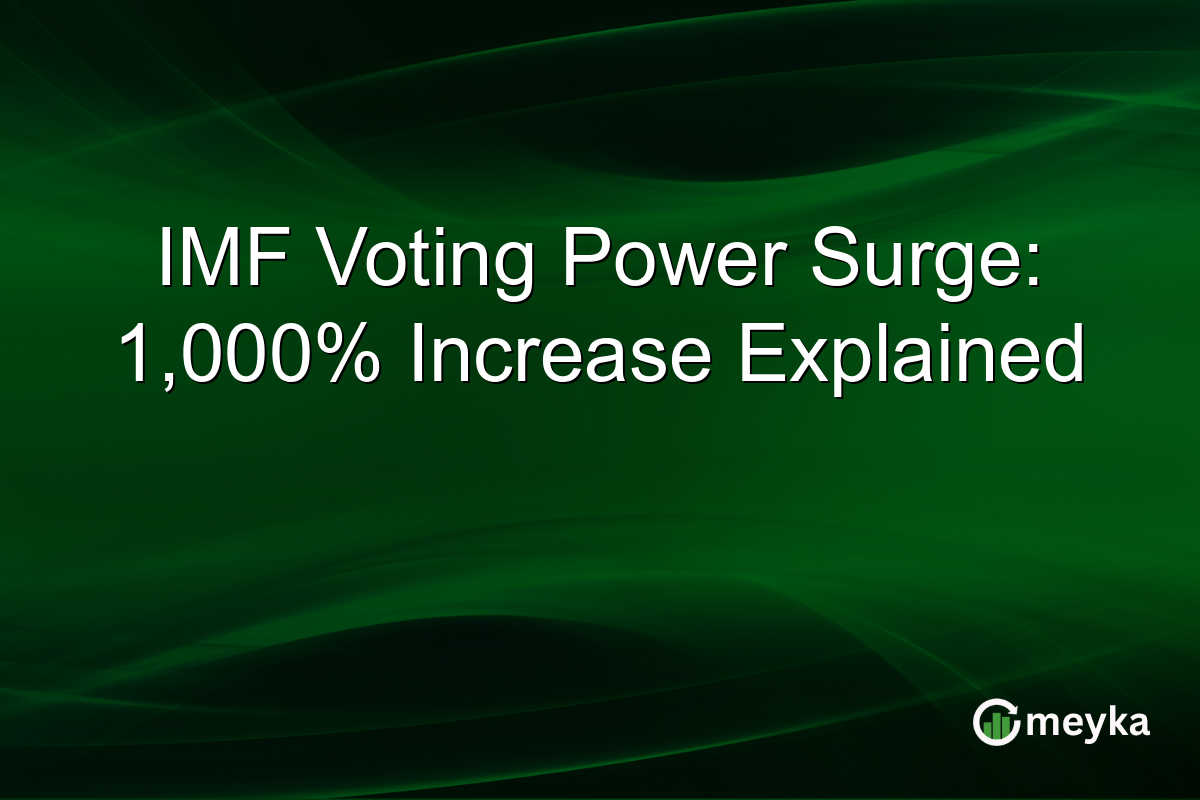IMF Voting Power Surge: 1,000% Increase Explained
A stunning 1,000% surge in the International Monetary Fund’s (IMF) voting power has caught the world’s attention. This pivotal change reshapes how global financial influence and governance strategies are managed. Key adjustments in IMF quotas and Special Drawing Rights (SDRs) have triggered this shift. These changes will profoundly impact member nations, altering the landscape of global economic strategies.
Continue Reading on Meyka
This article is available in full on our main platform. Get access to complete analysis, stock insights, and more.
Read Full Article →





